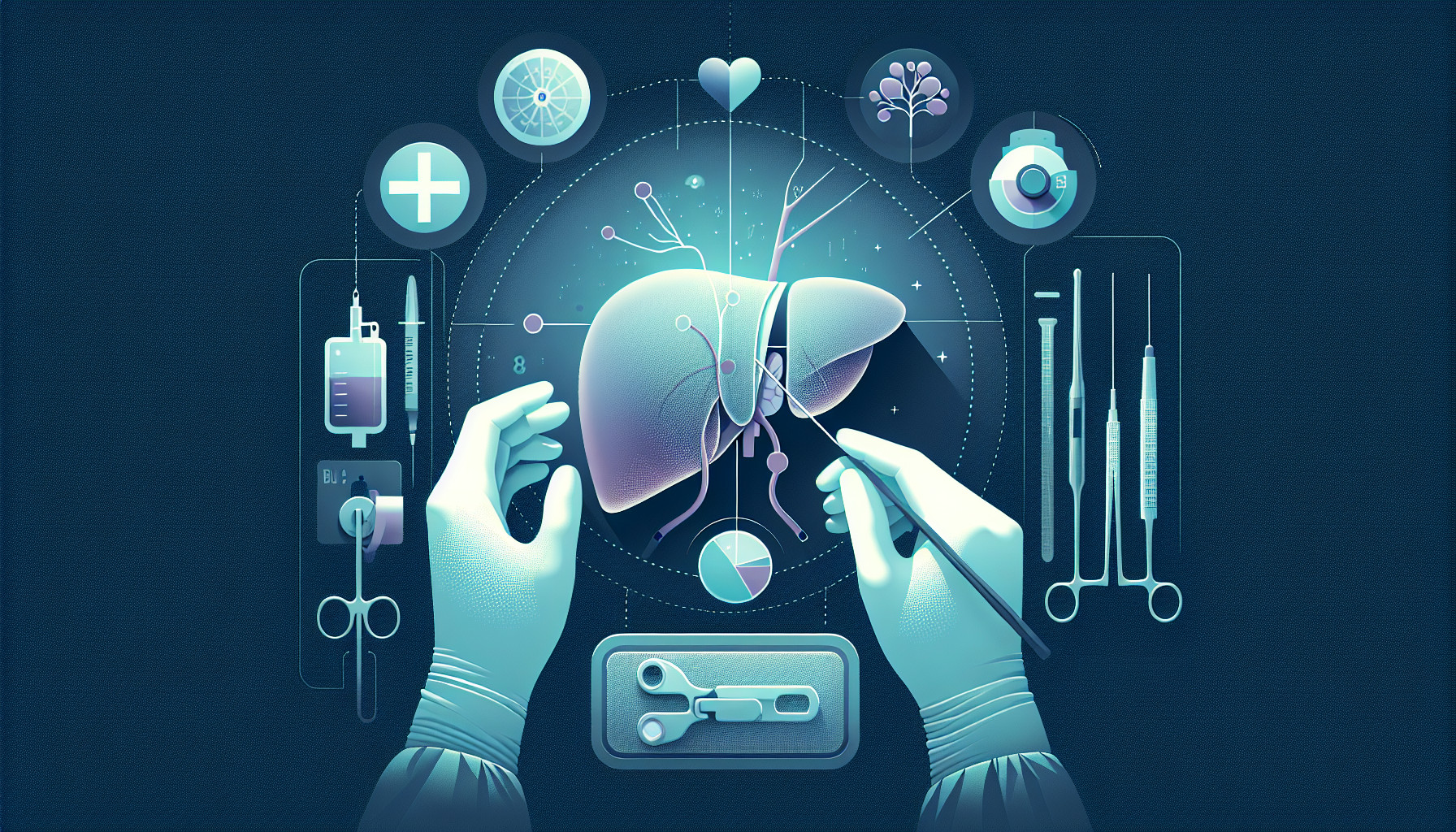Our Summary
This research paper discusses the care of children who have had liver transplants. These days, these children can expect to live long lives due to improvements in medicine and surgery. This means it’s important to focus not just on surviving the transplant, but also on managing any long-term side effects and improving the child’s quality of life. Doctors need to monitor the child’s growth, nutrition, mental health, and daily activities, as well as any issues related to the transplant itself. It’s important for the child’s main doctor to communicate well with the transplant team to ensure the child gets the best care possible. This includes understanding the child’s medication needs, common complications, and potential infections.
FAQs
- What are the long-term side effects that need to be managed in children who have had liver transplants?
- What are the key areas doctors need to monitor in a child after a liver transplant?
- How important is the communication between the child’s main doctor and the transplant team in managing the child’s post-transplant care?
Doctor’s Tip
One helpful tip a doctor might tell a patient about pediatric liver transplant is to ensure the child follows a strict medication schedule. It is crucial for the child to take their immunosuppressant medications as prescribed to prevent rejection of the new liver. Missing doses or not taking medications on time can increase the risk of complications and jeopardize the success of the transplant. It is important for parents or caregivers to create a routine and reminder system to help the child stay on track with their medication regimen. Regular communication with the healthcare team is also essential to address any concerns or issues that may arise.
Suitable For
The types of patients typically recommended for pediatric liver transplant include those with end-stage liver disease, acute liver failure, metabolic liver disease, genetic liver disorders, and liver tumors. These conditions may be caused by a variety of factors such as viral infections, autoimmune diseases, genetic mutations, or metabolic disorders. Children with liver disease may experience symptoms such as jaundice, fatigue, abdominal pain, swelling, and poor growth.
In many cases, liver transplant is considered when other treatments have been unsuccessful or when the child’s quality of life is significantly impacted by their liver disease. Transplantation may offer the best chance for survival and improved health outcomes for these patients. It is important for the child and their family to carefully consider the risks and benefits of liver transplant and to work closely with their healthcare team to make an informed decision.
Overall, pediatric liver transplant is a complex and life-changing procedure that requires careful consideration and ongoing care to ensure the best possible outcomes for the patient. By providing comprehensive care and support before, during, and after transplant, healthcare providers can help children with liver disease live longer, healthier lives.
Timeline
Timeline before pediatric liver transplant:
- Diagnosis of liver disease or failure
- Evaluation by a pediatric hepatologist and transplant team
- Pre-transplant evaluation including blood tests, imaging studies, and psychological evaluation
- Placement on the transplant waiting list
- Waiting for a suitable donor liver to become available
Timeline after pediatric liver transplant:
- Surgery to remove the diseased liver and replace it with a healthy donor liver
- Recovery in the hospital, which may include monitoring in the intensive care unit
- Post-transplant medications to prevent rejection and manage complications
- Regular follow-up appointments with the transplant team for monitoring and adjustment of medications
- Rehabilitation and physical therapy to regain strength and function
- Long-term monitoring for potential complications such as rejection, infections, and side effects of medications
- Support for the child and family to cope with the emotional and psychological impact of the transplant
- Focus on maintaining the child’s overall health and quality of life through proper nutrition, exercise, and mental health support.
What to Ask Your Doctor
Some questions a patient should ask their doctor about pediatric liver transplant include:
- What is the success rate of liver transplants in children?
- What are the potential risks and complications associated with the transplant surgery?
- How will the child’s medications and immunosuppressants be managed post-transplant?
- What kind of support and resources are available for the child and family during the recovery process?
- How often will the child need to follow up with the transplant team for monitoring and check-ups?
- What signs or symptoms should we watch for that may indicate a problem with the transplant?
- How can we ensure the child maintains a healthy diet and nutrition post-transplant?
- Are there any long-term side effects or complications that we should be aware of?
- What kind of mental health support is available for the child during the transplant process and beyond?
- How can we best coordinate care between the transplant team and the child’s primary care physician for comprehensive care management?
Reference
Authors: Hassan S, Ng VL, Aqul A. Journal: Curr Opin Pediatr. 2019 Oct;31(5):636-644. doi: 10.1097/MOP.0000000000000809. PMID: 31369476
